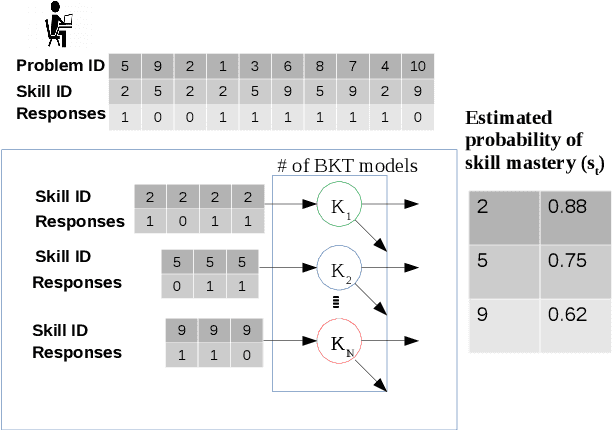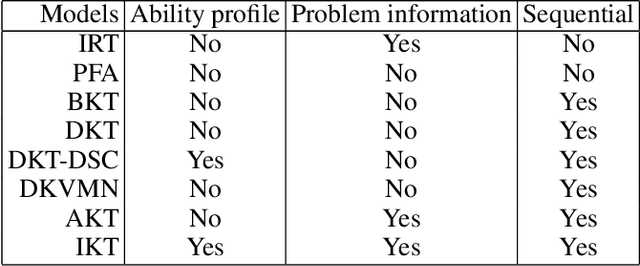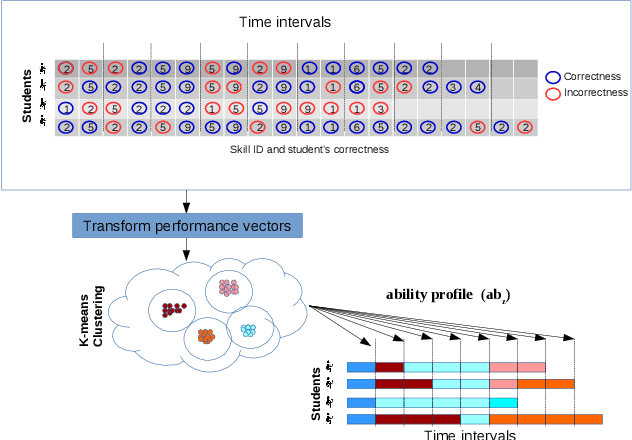Interpretable Knowledge Tracing: Simple and Efficient Student Modeling with Causal Relations
Paper and Code
Dec 15, 2021



Intelligent Tutoring Systems have become critically important in future learning environments. Knowledge Tracing (KT) is a crucial part of that system. It is about inferring the skill mastery of students and predicting their performance to adjust the curriculum accordingly. Deep Learning-based KT models have shown significant predictive performance compared with traditional models. However, it is difficult to extract psychologically meaningful explanations from the tens of thousands of parameters in neural networks, that would relate to cognitive theory. There are several ways to achieve high accuracy in student performance prediction but diagnostic and prognostic reasoning is more critical in learning sciences. Since KT problem has few observable features (problem ID and student's correctness at each practice), we extract meaningful latent features from students' response data by using machine learning and data mining techniques. In this work, we present Interpretable Knowledge Tracing (IKT), a simple model that relies on three meaningful latent features: individual skill mastery, ability profile (learning transfer across skills), and problem difficulty. IKT's prediction of future student performance is made using a Tree-Augmented Naive Bayes Classifier (TAN), therefore its predictions are easier to explain than deep learning-based student models. IKT also shows better student performance prediction than deep learning-based student models without requiring a huge amount of parameters. We conduct ablation studies on each feature to examine their contribution to student performance prediction. Thus, IKT has great potential for providing adaptive and personalized instructions with causal reasoning in real-world educational systems.
 Add to Chrome
Add to Chrome Add to Firefox
Add to Firefox Add to Edge
Add to Edge